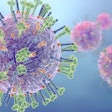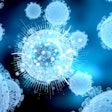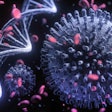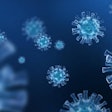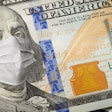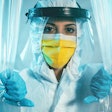
Academic labs could be converted to perform clinical work and process SARS-CoV-2 diagnostic assays with rapid turnaround times (TAT) to meet increased demand for testing during the COVID-19 pandemic. Investigators from Boston University and Boston Medical Center (BMC) provided an outline of how they adapted their lab in an article published online May 19 in Med.
The global public health crisis caused by COVID-19 has caused significant delays in the processing of diagnostic tests for SARS-CoV-2 infection. It has also led to the dichotomy of clinical labs overwhelmed with a backlog of tests while many academic labs have been shuttered to comply with social distancing rules.
But what if academic labs were converted to perform clinical work? A team led by senior author George Murphy, PhD, an associate professor of medicine at Boston University, decided to find out by converting their lab to process SARS-CoV-2 tests.
"As with other basic biology labs across the country, we were forced to shutter operations due to the pandemic," Murphy explained in a statement. "We saw that our friends and colleagues at Boston Medical Center were going into battle on the front lines of this pandemic, but that they were having to wait seven to 10 days for results from state and commercial laboratory facilities. This was unacceptable to us, and we decided we needed to take action."
To address the testing deficiency, Murphy and his team converted their biosafety level 2 plus (BSL-2+) basic science research facility into a clinical diagnostic laboratory.
The team requested and received emergency use authorization (EUA) from the U.S. Food and Drug Administration (FDA) to repurpose its lab to process a real-time reverse transcription polymerase chain reaction (RT-PCR) test they developed to detect viral SARS-CoV-2 RNA from nasopharyngeal swabs. The lab is currently functioning as an accredited space under CLIA guidelines and those from the College of American Pathologists (CAP).
The lab's medium-throughput diagnostic assay can process over 50 patient samples on a single real-time RT-PCR plate and the automated pipeline works with BMC's electronic medical record system to expedite the testing process. The new test has allowed BMC to significantly reduce the test result TAT from five to seven days to less than 24 hours.
Importantly, the lab's test was developed with techniques and reagents that are likely to remain available during the pandemic. Molecular biology expertise provided by Murphy and his team enabled them to design an assay with the flexibility to use various reagents at each step of the process.
"Our 'home-brew' assay is extremely flexible, allowing us to slot in various reagents at multiple points and eliminating potential supply-chain issues," said Murphy.
The authors hope that their success will serve as a blueprint for other academic centers and community hospitals lacking capital-intensive automated laboratory machinery to quickly "stand-up" as an in-house real-time PCR-based diagnostic assay for SARS-CoV-2 testing of their own underserved populations.









